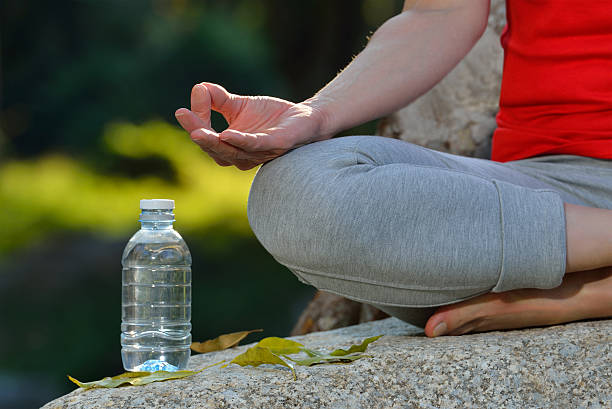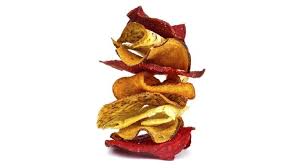History
Fluid on the knee, also known as water on the knee or knee effusion, has been a known condition for centuries. The first known written description of knee effusion is found in the ancient Egyptian Ebers Papyrus, which dates back to around 1500 BC.
Causes
Fluid on the knee can be caused by a variety of factors, including:
Check out our Knee Pads for Comfort and Relief
- Injury: A knee injury, such as a ligament tear or meniscus tear, can cause bleeding into the knee joint, which can lead to fluid buildup.
- Overuse: Overuse of the knee, such as from running or jumping, can also cause fluid buildup.
- Arthritis: Arthritis, such as osteoarthritis or rheumatoid arthritis, can cause inflammation and swelling in the knee joint, which can lead to fluid buildup.
- Infection: An infection in the knee joint, such as septic arthritis, can also cause fluid buildup.
- Other medical conditions: Other medical conditions, such as gout, pseudogout, and lupus, can also cause fluid buildup in the knee joint.
Symptoms
The most common symptom of fluid on the knee is swelling. The knee may also feel warm and tender. Other symptoms may include:
- Pain
- Stiffness
- Decreased range of motion
- Popping or cracking sounds in the knee
- Difficulty walking or standing
Natural Treatments
There are a number of natural treatments that may help to get fluid out of the knee. These treatments include:
- Rest: Avoiding activities that put weight on the knee can give the knee time to heal and the fluid to subside.
- Ice: Applying ice to the knee for 20 minutes at a time, several times a day, can help to reduce inflammation and swelling.
- Compression: Wrapping the knee with an elastic bandage or compression sleeve can also help to reduce swelling.
- Elevation: Elevating the knee above the level of the heart when resting can help to reduce swelling.
- Turmeric: Turmeric is a spice that has anti-inflammatory properties. You can take turmeric capsules or add turmeric powder to your food.
- Bromelain: Bromelain is an enzyme that is found in pineapple. It has anti-inflammatory and pain-relieving properties. You can take bromelain capsules or eat pineapple.
- Ginger: Ginger is a root that has anti-inflammatory and pain-relieving properties. You can take ginger capsules or drink ginger tea.
- Epsom salt baths: Epsom salt baths can help to reduce inflammation and pain. Add 1-2 cups of Epsom salt to a warm bath and soak for 20 minutes.
Other Treatments
If home remedies are not effective or if the fluid is severe, you may need to see a doctor for other treatments. These treatments may include:
- Physical therapy: Physical therapy can help to strengthen the muscles around the knee and improve range of motion.
- Corticosteroid injections: Corticosteroid injections can help to reduce inflammation and swelling in the knee joint.
- Draining the fluid: If the fluid is severe, it may need to be drained from the knee joint. This can be done with a needle or with a small incision.
- Surgery: In rare cases, surgery may be necessary to treat fluid on the knee. This is typically only necessary if the fluid is caused by a serious underlying condition, such as a ligament tear or meniscus tear.
Prevention
There are a number of things that you can do to help prevent fluid on the knee, including:
- Maintain a healthy weight: Excess weight puts extra stress on the knee joints.
- Exercise regularly: Exercise helps to strengthen the muscles around the knee and improve range of motion.
- Avoid overuse: Avoid activities that overuse the knee, such as running and jumping.
- Wear proper footwear: Wearing supportive shoes can help to reduce stress on the knee joints.
When to See a Doctor
You should see a doctor if:
- The fluid on your knee is severe or does not improve with home treatment.
- You have pain, swelling, or redness in your knee.
- You have difficulty walking or standing.
- You have a fever.
Fluid on the knee is a common condition that can cause pain, swelling, and stiffness. It can be caused by a variety of factors, including injury, overuse, arthritis, and infection.
There are a number of natural treatments that may help to get fluid out of the knee. These treatments include rest, ice, compression, elevation, and the use of anti-inflammatory herbs and supplements.
If home remedies are not effective or if the fluid is severe, you may need to see a doctor for other treatments. These treatments may include physical therapy, corticosteroid injections, fluid drainage, or surgery.
Research on Natural Treatments for Fluid on the Knee
There is some scientific evidence to support the use of certain natural treatments for fluid on the knee. For example, a study published in the journal Phytotherapy Research found that bromelain, an enzyme found in pineapple, was effective in reducing inflammation and pain in people with knee osteoarthritis. Another study, published in the journal Journal of Alternative and Complementary Medicine, found that turmeric, a spice with anti-inflammatory properties, was effective in reducing pain and stiffness in people with knee osteoarthritis.
However, more research is needed to confirm the effectiveness of natural treatments for fluid on the knee. It is also important to note that some natural treatments may interact with other medications you are taking, so it is important to talk to your doctor before starting any new herbal supplements or treatments.
Future Directions of Research
There are a number of areas where future research on natural treatments for fluid on the knee is needed. For example, more research is needed to determine the optimal dosage and frequency of use for different natural treatments. Additionally, more research is needed to compare the effectiveness of natural treatments to conventional medical treatments. Finally, more research is needed to investigate the long-term safety and efficacy of natural treatments for fluid on the knee.
Conclusion
Fluid on the knee is a common condition that can be caused by a variety of factors. In most cases, it can be treated at home with simple remedies, such as RICE and natural remedies. However, if the fluid is severe or does not improve with home treatment, it is important to see a doctor to determine the underlying cause and get the appropriate treatment.
Natural treatments for fluid on the knee may be a safe and effective option for some people. However, it is important to talk to your doctor before starting any new herbal supplements or treatments.
Here are some additional tips for preventing fluid on the knee:
- Maintain a healthy weight.
- Exercise regularly to strengthen the muscles around the knee and improve range of motion.
- Avoid overuse of the knee.
- Wear supportive shoes.





